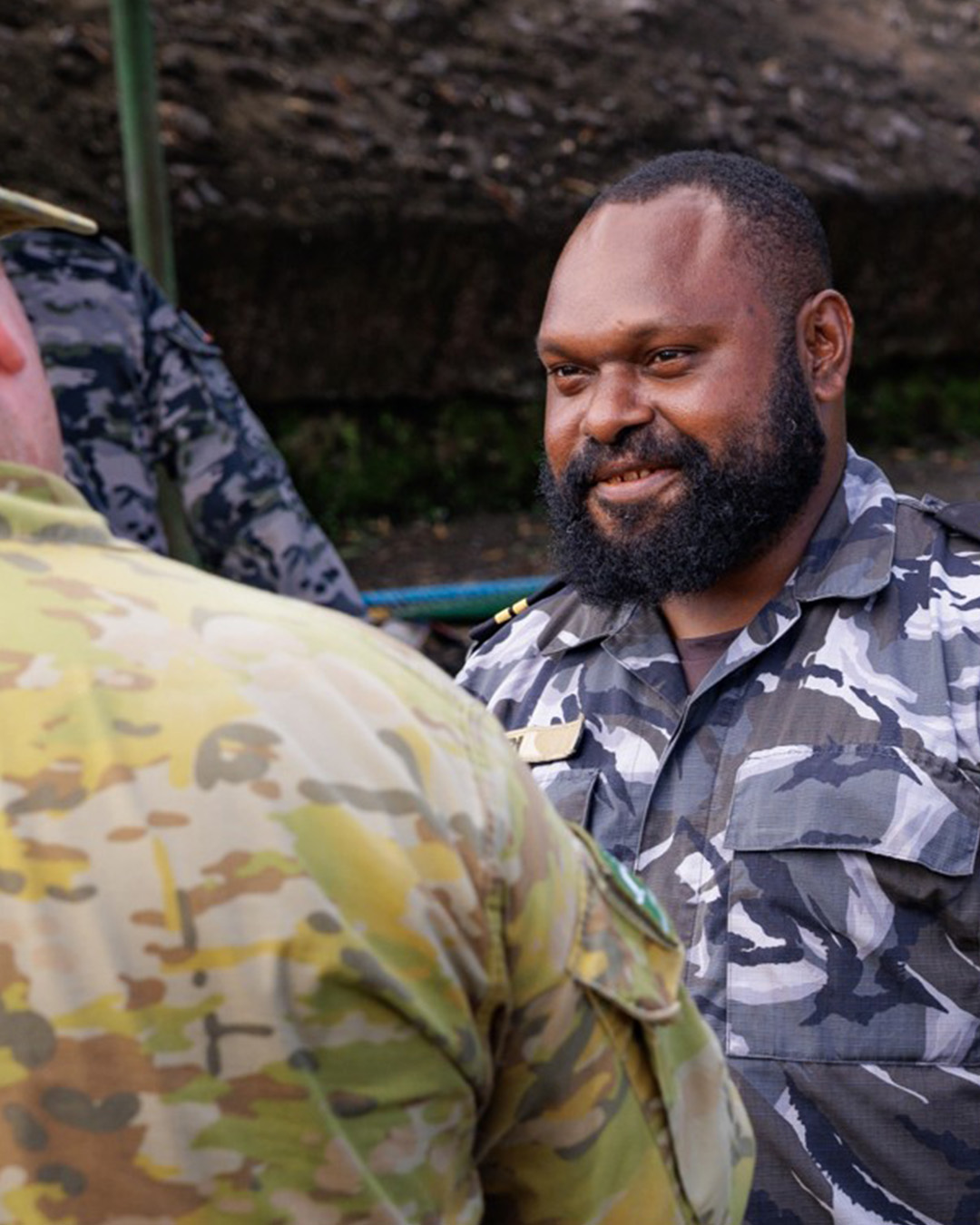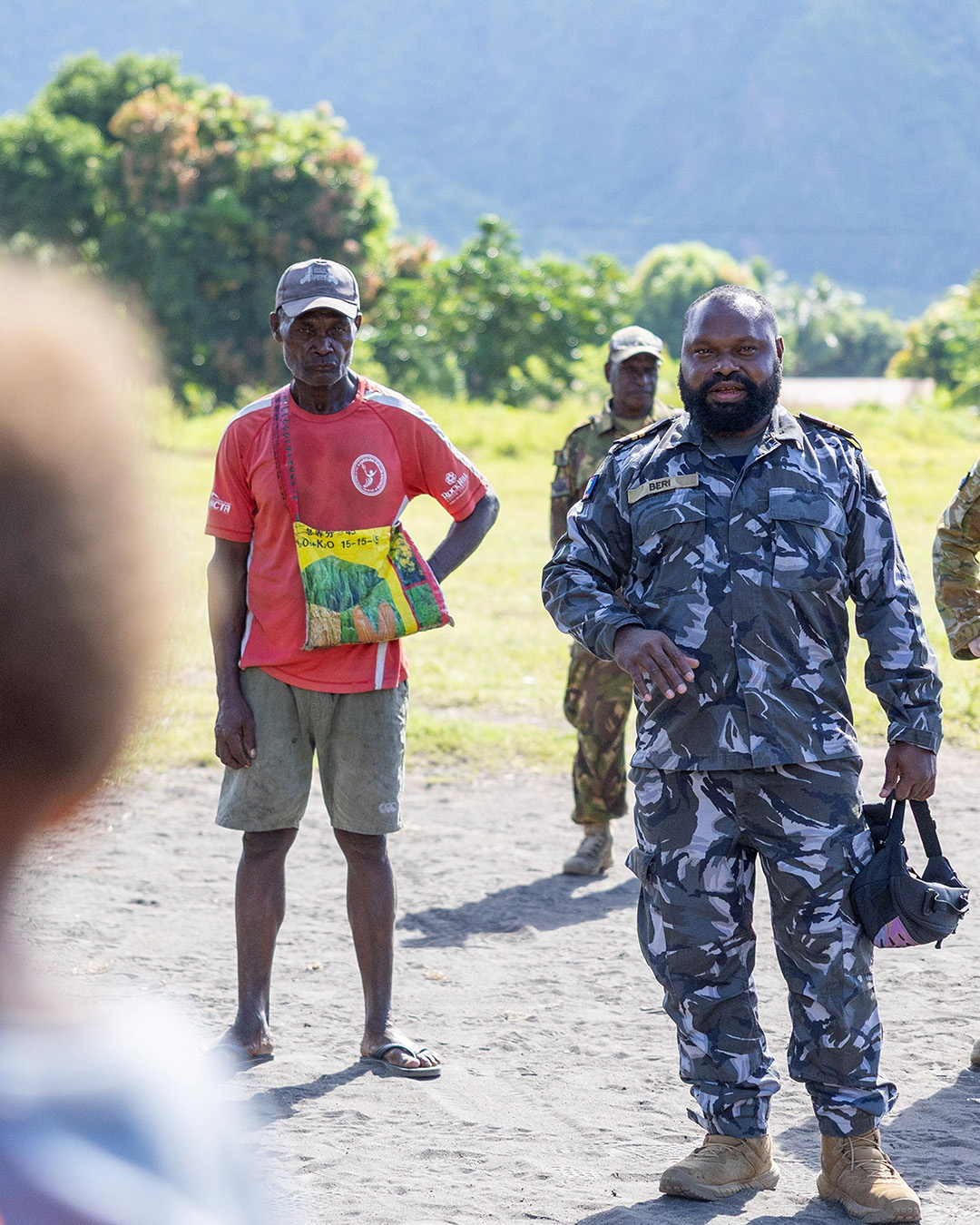Stories from the Field
Teams around the world face challenges head-on, finding innovative ways to solve problems and make a difference. Stories from the Field shares their experiences, resilience, and moments of impact that inspire change and drive progress.
Meet Henry James Beri,
Officer Commanding
Explosive Ordnance Disposal & Clearance Diving Unit (EOD/CD Unit), Papua New Guinea Defence Force
“Don’t touch it. Only specialists handle those things.” Said my mother. Now, decades later, I am that specialist.
In parts of Papua New Guinea, explosives left over from a war fought more than 80 years ago are now being used to harm people.
These 80-year-old bombs — from World War II — are being dug up, traded, and repurposed into improvised explosive devices. There are reports of them being used in tribal disputes, to hold people captive, or to threaten entire communities. Papua New Guinea has a strong stance against terrorist acts including the unlawful and intentional use of explosives in public places with the intent to cause death, serious injury, or extensive destruction.
For someone like me — Officer Commanding of the EOD/CD Unit— this has only deepened the urgency of our work. I didn’t choose this profession by chance. As a child, I was raised by a mother who taught in rural schools and constantly reminded us to stay away from suspicious objects. One day, when I was barely out of grade one, my friends and I came across UXO playing. Her words came back to me immediately: “Don’t touch it. Tell someone. Only specialists handle those things.”


Now, decades later, I am that specialist. Today, I lead a determined team tasked with finding and safely removing explosive remnants of war. Papua New Guinea has an estimated 59% of its territory affected by UXO, especially in areas where battles between Japanese and Allied forces took place. These bombs threaten lives, communities, and economic development. We’re often called in by private companies to clear land before new development projects begin. But UXO doesn’t only delay progress — it causes injuries, damages homes, and leaves fields unusable. In some areas, families can’t grow food because the ground could contain UXO. I’ve met parents who were injured and left unable to care for their children.
Our unit faces many challenges: logistics, lack of data, policy gaps, and limited resources. We also don’t yet have a national mine action authority like the Solomon Islands — a country with similar terrain and post-WWII contamination, but ahead of us in organizing its response. Cooperating with the Solomon Islands and other pacific island countries is inspiring. From the operational level we’ve been looking at ways we can help each other. Once we accrue strategic support from our leaders, we will be well placed to confidently tackle the problem. The GICHD’s Ops Analyst training on the Gold Coast in Australia has opened my eyes to see things from a different perspective. I’m also able to reflect on our work in a critical way, so we can strive to re-arrange and come up with key performance indicators to help us become more efficient and effective.
The training also gave us tools to critically assess our own work. We’re now developing key performance indicators and exploring how better information management can help us plan ahead — not just react.
Rabaul, for example, is one area of concern. It’s not our largest port, but Rabaul still plays a key regional role. We’ve received reports of possible torpedoes or aircraft bombs under its harbor, just 300 meters from a fuel depot. The depot sits within the estimated fragmentation radius if one of those bombs explodes — it wouldn’t just be a local disaster. It could affect regional trade and put lives at serious risk.

The work isn’t easy. But it’s meaningful. There’s nothing like the moment when a community member smiles back at you after a clearance operation. Seeing my team get outside support — whether from defense partners or NGOs — gives me hope. When they perform well, they know they’re making a real difference.
With stronger leadership support and continued collaboration with partners like GICHD, I believe Papua New Guinea can build a safer, more coordinated response to UXO through the creation of a National Authority and operating using a National Standard, just like our neighbor Solomon Islands. Because these bombs may be old, but the risks they pose — to lives, livelihoods, and national security — are very real and very present.
